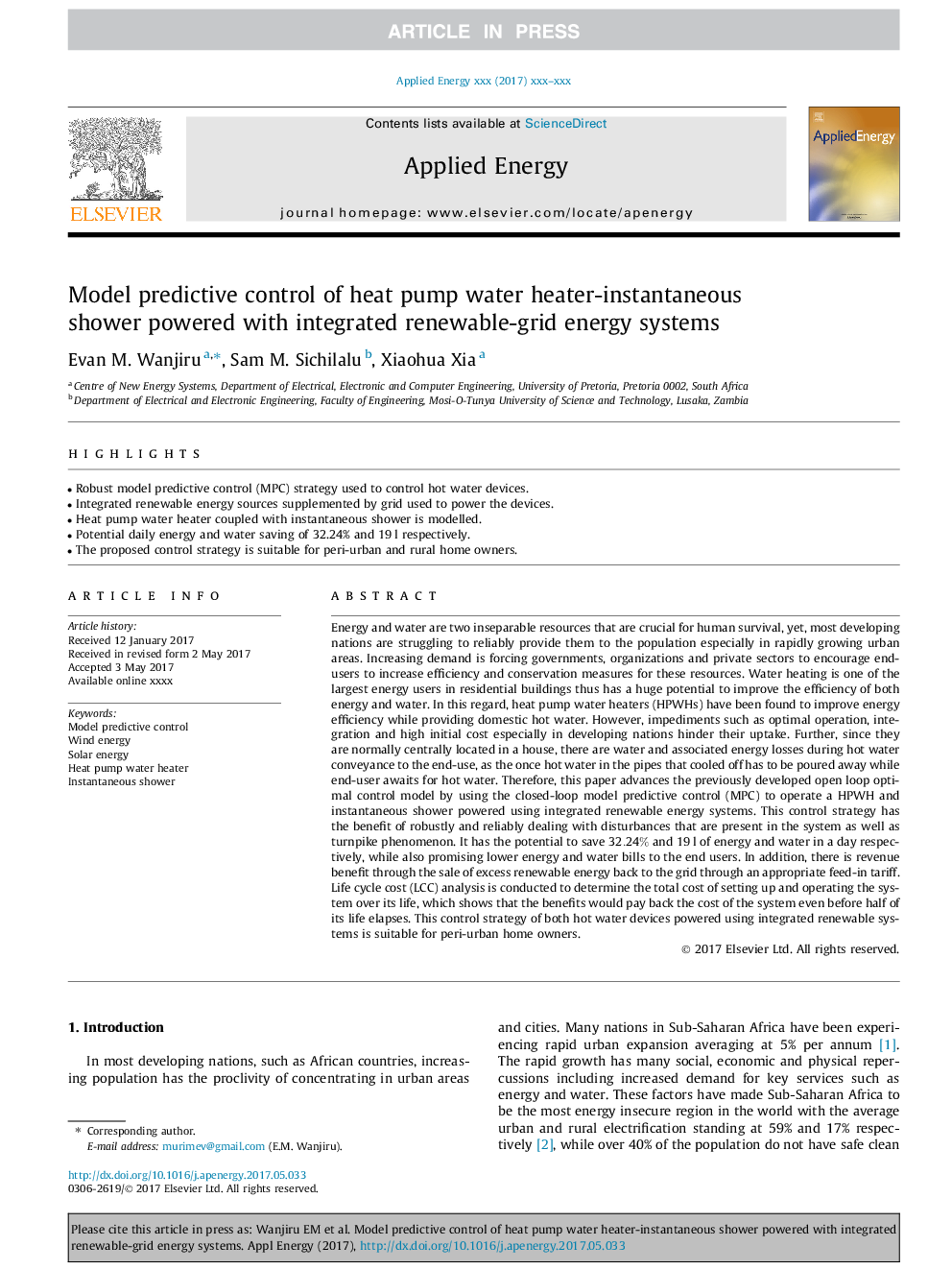ترجمه فارسی عنوان مقاله
مدل کنترل پیش بینی کننده پمپ گرمای بخاری آبگرمکن با استفاده از یک سیستم انرژی مجتمع تجدید پذیر
عنوان انگلیسی
Model predictive control of heat pump water heater-instantaneous shower powered with integrated renewable-grid energy systems
| کد مقاله | سال انتشار | تعداد صفحات مقاله انگلیسی |
|---|---|---|
| 149945 | 2017 | 14 صفحه PDF |
منبع

Publisher : Elsevier - Science Direct (الزویر - ساینس دایرکت)
Journal : Applied Energy, Volume 204, 15 October 2017, Pages 1333-1346
ترجمه کلمات کلیدی
کنترل پیش بینی مدل، انرژی باد، انرژی خورشیدی، پمپ آب پمپ آب، دوش موقت
کلمات کلیدی انگلیسی
Model predictive control; Wind energy; Solar energy; Heat pump water heater; Instantaneous shower;

